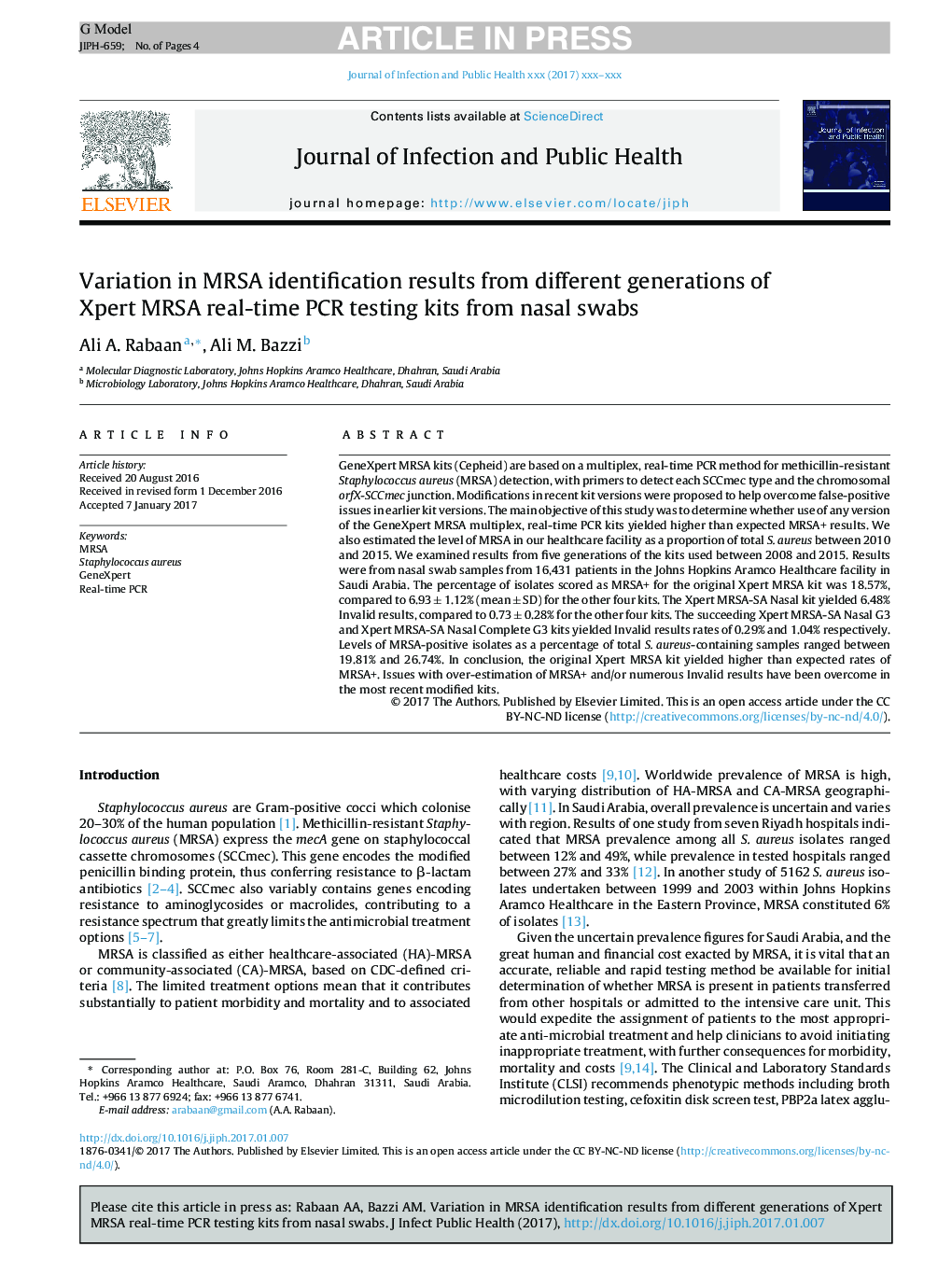| Article ID | Journal | Published Year | Pages | File Type |
|---|---|---|---|---|
| 8746922 | Journal of Infection and Public Health | 2017 | 4 Pages |
Abstract
GeneXpert MRSA kits (Cepheid) are based on a multiplex, real-time PCR method for methicillin-resistant Staphylococcus aureus (MRSA) detection, with primers to detect each SCCmec type and the chromosomal orfX-SCCmec junction. Modifications in recent kit versions were proposed to help overcome false-positive issues in earlier kit versions. The main objective of this study was to determine whether use of any version of the GeneXpert MRSA multiplex, real-time PCR kits yielded higher than expected MRSA+ results. We also estimated the level of MRSA in our healthcare facility as a proportion of total S. aureus between 2010 and 2015. We examined results from five generations of the kits used between 2008 and 2015. Results were from nasal swab samples from 16,431 patients in the Johns Hopkins Aramco Healthcare facility in Saudi Arabia. The percentage of isolates scored as MRSA+ for the original Xpert MRSA kit was 18.57%, compared to 6.93 ± 1.12% (mean ± SD) for the other four kits. The Xpert MRSA-SA Nasal kit yielded 6.48% Invalid results, compared to 0.73 ± 0.28% for the other four kits. The succeeding Xpert MRSA-SA Nasal G3 and Xpert MRSA-SA Nasal Complete G3 kits yielded Invalid results rates of 0.29% and 1.04% respectively. Levels of MRSA-positive isolates as a percentage of total S. aureus-containing samples ranged between 19.81% and 26.74%. In conclusion, the original Xpert MRSA kit yielded higher than expected rates of MRSA+. Issues with over-estimation of MRSA+ and/or numerous Invalid results have been overcome in the most recent modified kits.
Related Topics
Health Sciences
Medicine and Dentistry
Infectious Diseases
Authors
Ali A. Rabaan, Ali M. Bazzi,
